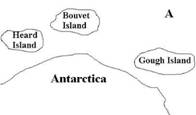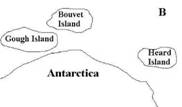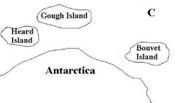
题目列表(包括答案和解析)
When someone says, "Well, I guess I’ll have to go to face the music", it does not mean he is planning to go to a concert. It is something far less pleasant, like being called in by your boss to explain why you did this or that, and why you did not do this or that. Sour(剌耳的; 拙劣的)music, indeed, but it has to be faced.
The phrase “to face the music” is familiar to every American, young and old. It is at least 100 years old. Where did the expression come from?
The first information comes from the American writer James Fennimore Cooper. He said in 1851 that the expression was first used by actors while waiting in the wings to go on stage. After they got their cue(提示,暗示) to go on, they often said, "It’s time to go to face the music." And that is exactly what they did--- face the orchestra (管弦乐队) which was just below the stage.
An actor might be frightened or nervous as he moved on to the stage in front of the audience that might be friendly or perhaps unfriendly especially if he forgot his lines. But he had to go out. So, “to face the music" came to mean having to go through something, no matter how unpleasant the experience might be, because you knew you had no choice.
The other explanation comes from the army. Men had to face inspection(视 察)by their leader. The soldiers worried about how well they looked. Was their equipment clean--shiny enough to pass inspection? Still, the men had to go out, and face the music of the band, as well as the inspection. What else could they do?
According to the passage, the word “music" means________.
A.your boss’s criticism(批评) B.your leader’s inspection
C.something unpleasant to be experienced D.sour pop music
The phrase ‘to face the music" was first used by _______.
A.all the Americans B.the American writer James Fennimore cooper
C.some American actors D.the American orchestra
An actor might feel frightened or nervous when going on stage. One of the reasons is that ______.
A.his performance was not good at all
B.he might not remember what he should say on stage
C.he had to face the unfriendly audience
D.most of the audience might be his friends
to face the music" is also used to mean that soldiers were not willing _______.
A.to be examined about their equipment B.to be found weak
C.to show themselves up in public D.to be inspected by their leader
The passage is mainly about_______.
A.the meaning of the phrase ‘to face the music" B.how to deal with something unpleasant
C.how to learn English phrase D.how to go through difficulty
HOW TO QUIT SMOKING
When thinking about quitting…
List all the reasons why you want to quit. Every night before going to bed, repeat one of the reasons 10 times. Decide surely that you want to quit. Try to avoid negative(消极的)thoughts about how difficult it might be. Develop strong personal reasons in addition to your health and duties to others. For example, think all the time you waste taking cigarette breaks, rushing out to buy a pack, hunting a light, etc. Set a date for quitting—perhaps a special day like your birthday, or a holiday. If you smoke heavily at work, quit during your vacation. Make the date seriously, and don’t let anything change it. Begin to prepare yourself physically: start a modest(适度的)exercise, drink more water, get plenty of rest.
Immediately after quitting…
The first few days after you quit, spend as much free time as possible in places where smoking is forbidden, e.g. libraries, museums, theatres, department stores, etc. Drink large quantities of water and fruit juice. Try to avoid wine, coffee, and other drinks, which remind you of cigarette smoking. Start a conversation with someone instead of asking for a match for a cigarette. If you miss the sensation(感觉)of having a cigarette in your hand, play with something else—a pencil, a pen, or a ruler. If you miss having something in your mouth, try toothpicks or a fake(假的)cigarette.
Which of the following statements is best supported by the author?
A.When you want a cigarette, try to forget it by starting a conversation with someone.
B.Try to drink wine, coffee, and other drinks instead of a cigarette.
C.If you miss the sensation of having a cigarette in your mouth, play with a pen.
D.Every night before going to bed, repeat the reasons 10 times.
From the passage, we know smokers _______.
A.spend a lot of time breaking the habit of smoking
B.have to stop to smoke from time to time
C.had better quit smoking during their holiday
D.start a modest exercise every day
The author suggests _______ immediately after quitting.
A.all kinds of drinks be avoided
B.drinking water and fruit juice
C.trying low-tar(低焦油)cigarettes
D.spending as much free time as possible in public places
If the article is in a newspaper, which section is it in?
A.Sports. B.News. C.Health. D.Culture.
Where is that noise coming from? Not sure? Try living with your eyes closed for a few years.
Blind people are better at locating sounds than people who can see, a new study says, without the benefits of vision the ears seem to work much better.
Previous studies have shown that blind people are better than others at reaching out and touching the sources of sounds that are close by. Researchers from the University of Montreal wanted to see if blind people were also better at locating sounds that are far away.
Twenty-three blind people participated in the study. All had been sightless for at least 20 years. Fourteen of them had lost their vision before age 11. the rest went blind after age 16. The experiment also included 10 people who could see but were wearing blind-folds.
In one task, volunteers had to pick the direction of a sound coming from about 3 meters away. When the sound was in front of them or slightly off center in front, both groups performed equally well.
When sounds came from the side or the back, however, the blind group performed much better than the blindfolded group. The participants who had been blind since childhood did slightly better than those who lost their sight later.
Recognizing the locations of distant sounds can be a matter of life-or-death for blind people, say the researchers. Crossing the street, for instance, is much harder when you can’t see the cars coming.
Still, the researchers were surprised by how well the blind participants did, especially those who went blind after age 16. In another experiment, the scientists also found that parts of the brain that normally deal with visual information became active in locating sound in the people who were blind by age 11. These brain parts didn’t show sound-location activity in the other group of blind people or in the sighted people. The scientists now want to learn more about the working of brains of “late-onset” blind people.
The recent study shows blind people are better at telling __________.
A. The sources of loud sounds. B. the locations of distant sounds
C. the direction of sharp sounds D. the distance of a sound in front of them
Which would be a proper title for the passage?
A. A Research on Blind People B. Where is That Noise Coming from?
C. Hearing Better in the Dark D. What If Living Without Your Eyes?
If people were asked to tell the direction of a sound from the side, who would perform best?
A. Those who are blind. B. Those who have gone blind since children.
C. Those who went blind at age 16. D. Those who are blindfolded.
Which of the following is true according to the passage?
A. Whether to be able to locate the sounds can be of vital importance for the blind.
B. All the volunteers in the experiment are sightless.
C. All the participants did equally well when picking sounds from whatever direction.
D. The later people become blind, the better they can perform in telling the direction of sounds.
What do we know about that parts of brain dealing with visual information are active in locating sounds?
A. This happens in almost all the testers.
B. This only occurs in the people who were blind after age 16.
C. It remains nothing new to the scientists any more.
D. It remains a mystery why it is so.
A strong wind can be a dangerous thing — sometimes it is powerful enough to knock you off your feet. But to plants, the wind is a source of new life, carrying them or their spores (孢子) thousands of miles.
A NASA satellite called QuikSCAT has discovered highways of wind over the Earth's oceans. Scientists believe these invisible roads may explain why many nonflowering plants, such as mosses (苔) and lichens (地衣), grow where they do.
The satellite is able to send microwaves (微波) from space to the surface of the ocean. The pattern of signals that come back shows which way the winds are blowing.
Using this data, the scientists studied a group of islands in the southern hemisphere (半球), near Antarctica.Winds tend to blow anticlockwise (逆时针) in this region, but there are lots of local differences.
When the researchers compared these local patterns to botanical (植物学) data, they found that the wind had an important effect on where species of mosses, lichens, and other nonflowering plants grow.
For example, Bouvet Island and Heard Island, share 30 per cent of their moss species, 29 per cent of liverworts (叶苔), and 32 per cent of lichens — even though they are 4,430 kilometers apart. In contrast, Gough Island and Bouvet Island, separated by just 1,860 kilometers of sea, share only 16 per cent of mosses and 17 per cent of liverworts. They have no lichens in common.
Ferns (蕨类植物) and flowering plants don't travel as well in the wind, so they don't show the same kinds of distribution (分布) patterns.
This story is about _____.
A.the discovery of wind highways B.how wind travels
C.how wind affects different plants D. one function of the wind
The underlined word "data" in the fourth paragraph means _____.
A.signal B.pattern C.information D. research
Which of the following is wrong?
A.Bouvet Island, Heard Island and Gough Island are all in the southern hemisphere.
B.Winds in the researched area blow anti-clockwise.
C.The scientists shouldn't base this research on how winds affect where ferns grow.
D. Without the discovery of QuikSCAT, the research wouldn't have made sense.
Which of the following diagrams shows the correct position of the islands?




How many coins have you got in your pocket right now?Three?Two?Or one?With a phonecard you can make up to 200 calls without any change at all.
1.What do you do with it?
Go to a telephone box marked “Phonecard”.Put in your card,make your call and when you've finished,a screen tells you how much is left on your card.It costs no extra for the cards,and the calls cast 10 per unit,the same as any other payphone call.You can put them in units of 10,20,40,100 or 200.
2.Now appearing in a shop near you
Near each card phone place you'll find a shop where you can buy one.They're at bus,train and city tube stations.Many universities,hospitals and clubs,restaurants and gas stations on the highway and shopping centers.At airports and seaports.
3.No more broken payphones
Most broken payphones are like that they've been vandalized(破坏了的).There are no coins in Cardphone to excite thieves' interest in it.So you're not probably to find a vandalized one.Get a phonecard yourself and try it out.Or get a bigger wallet.
There are three sections in the passage.Which section do you think is about why phonecards are good?
A.Section 1. B.Section 2. C.Section 3. D.Section 1&2.
Choose the right order of the steps under“How to use a phonecard”.
a.Put in your phonecard.
b.Look at the screen to find out how many calls you can still make.
c.Go to a telephone box marked “Phonecard”.
d.Make your call.
A.a,b,c,d B.c,a,d,b C.a,d,c,b D.c,d,a,b
The last sentence “Or get a bigger wallet”means“_________”.
A.Phonecards are cheap
B.You cannot use all payphones
C.Thieves will not break card phones
D.People do not like carrying a lot of coins
湖北省互联网违法和不良信息举报平台 | 网上有害信息举报专区 | 电信诈骗举报专区 | 涉历史虚无主义有害信息举报专区 | 涉企侵权举报专区
违法和不良信息举报电话:027-86699610 举报邮箱:58377363@163.com